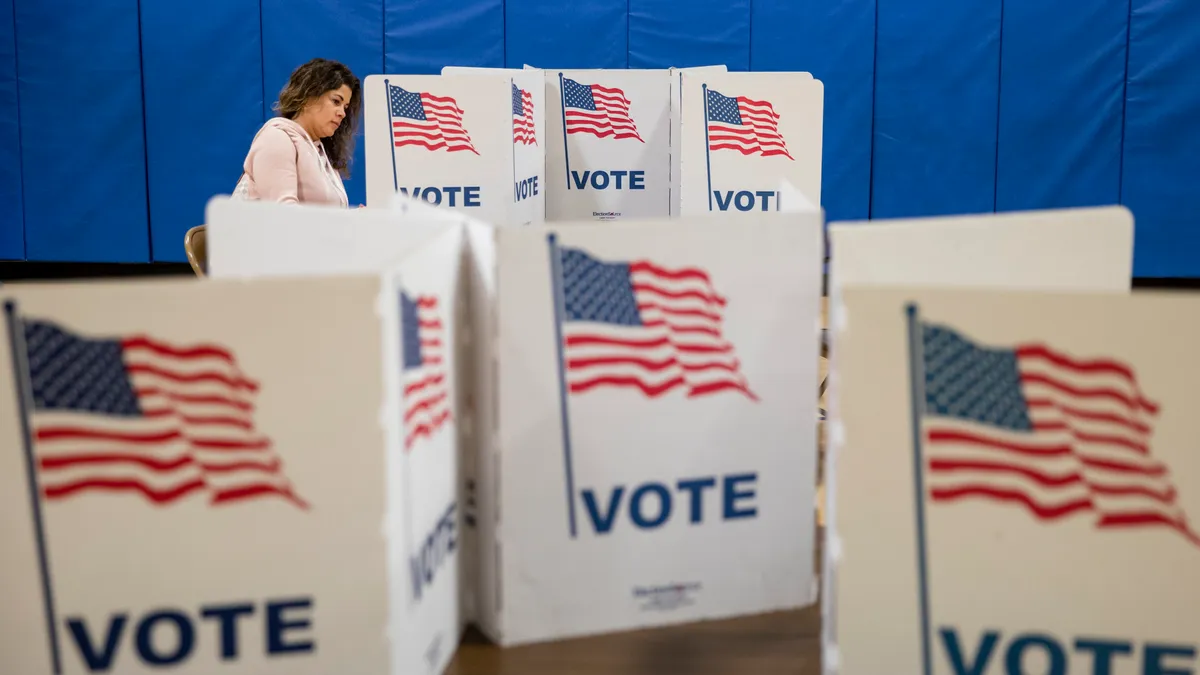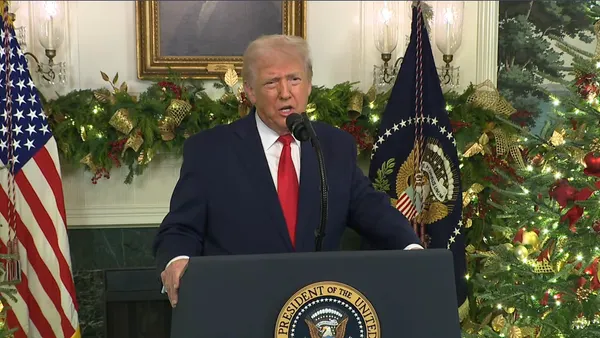Dive Brief:
-
With elections nearing on Nov. 8, half of the 18 gubernatorial major-party candidates in Southern states have shown or expressed support for restricting race-related discussions in K-12 classrooms, according to a report released Monday by the nonprofit, nonpartisan Southern Education Foundation.
-
One candidate, Stacey Abrams — a Democrat running for governor in Georgia — said she would repeal a law censoring instruction on race-related topics, while the remaining eight have not expressed an explicit position on the issue, the report said.
-
Of the six candidates in state school superintendent races in the South, the foundation found three support restrictions on teaching about race and sexuality to varying degrees. At least two other superintendent candidates said they don’t support those censorship efforts, according to the report.
Dive Insight:
As state legislative efforts to censor school conversations around race, gender and sexuality gained significant steam this year, the issue doesn't seem to be going away anytime soon.
According to the Southern Education Foundation report, Republicans account for almost all of the Southern gubernatorial candidates who signaled support for censoring classroom discussions. However, Joy Hofmeister, the current state superintendent of Oklahoma and a Democrat running for Oklahoma governor, has said she is “opposed to critical race theory in schools and the adoption of any radical political agenda as part of the K-12 curriculum,” the report found.
Sarah Huckabee Sanders of Arkansas is the lone Republican candidate in the report to have not expressed a position on classroom censorship policies.
Other gubernatorial candidates outside of the South have also leaned into support for classroom censorship policies. In Illinois, Republican candidate Darren Bailey has said if he’s elected, he’ll focus on removing “critical race theory” and “egregious” sex education standards from schools, NPR Illinois reported in August.
The campaign website for Michigan Republican gubernatorial candidate Tudor Dixon states that, if elected, she would seek to “ban school personnel from talking to Kindergarten-3rd grade children about sex and gender theory secretly behind their parents' backs.”
This is not the first year that these issues are playing into state-level political campaigns.
In 2021, Virginia Gov. Glenn Youngkin, a Republican, won after heavily campaigning on the narrative that critical race theory — a college-level academic theory and legal framework — was being taught in K-12 schools while also advocating for more “parental rights” in education.
In Florida, the Parental Rights in Education Act, referred to by opponents as the “Don’t Say Gay” law, took effect July 1 with support from incumbent Republican Gov. Ron DeSantis. Under the law, the Florida State Board of Education in Octoberunanimously approved a measure permitting the firing of teachers and the suspension or revocation of their licenses if they “intentionally provide classroom instruction to students in kindergarten through grade 3 on sexual orientation or gender identity.”
Opponents of classroom censorship efforts warn education will suffer as a result of these policies.
Bills looking to prohibit classroom discussions on topics such as race and LGBTQ culture could also prevent teachers from wanting to join the profession, especially when there are fines and penalties involved, according to a report by the American Association of Colleges for Teacher Education.
The Southern Education Foundation, which released the report tracking Southern gubernatorial and state superintendent candidates' stances on classroom censorship, opposes efforts that discourage or completely halt teachers from discussing issues of race and inequality.
“If we ban classroom lessons on these topics, especially with little or no evidence for doing so, we keep students from learning the nation’s full history and developing the critical thinking skills that come from a more accurate and complete presentation of the American story,” said Raymond Pierce, the foundation’s president and CEO, in a statement.






 Dive Awards
Dive Awards






